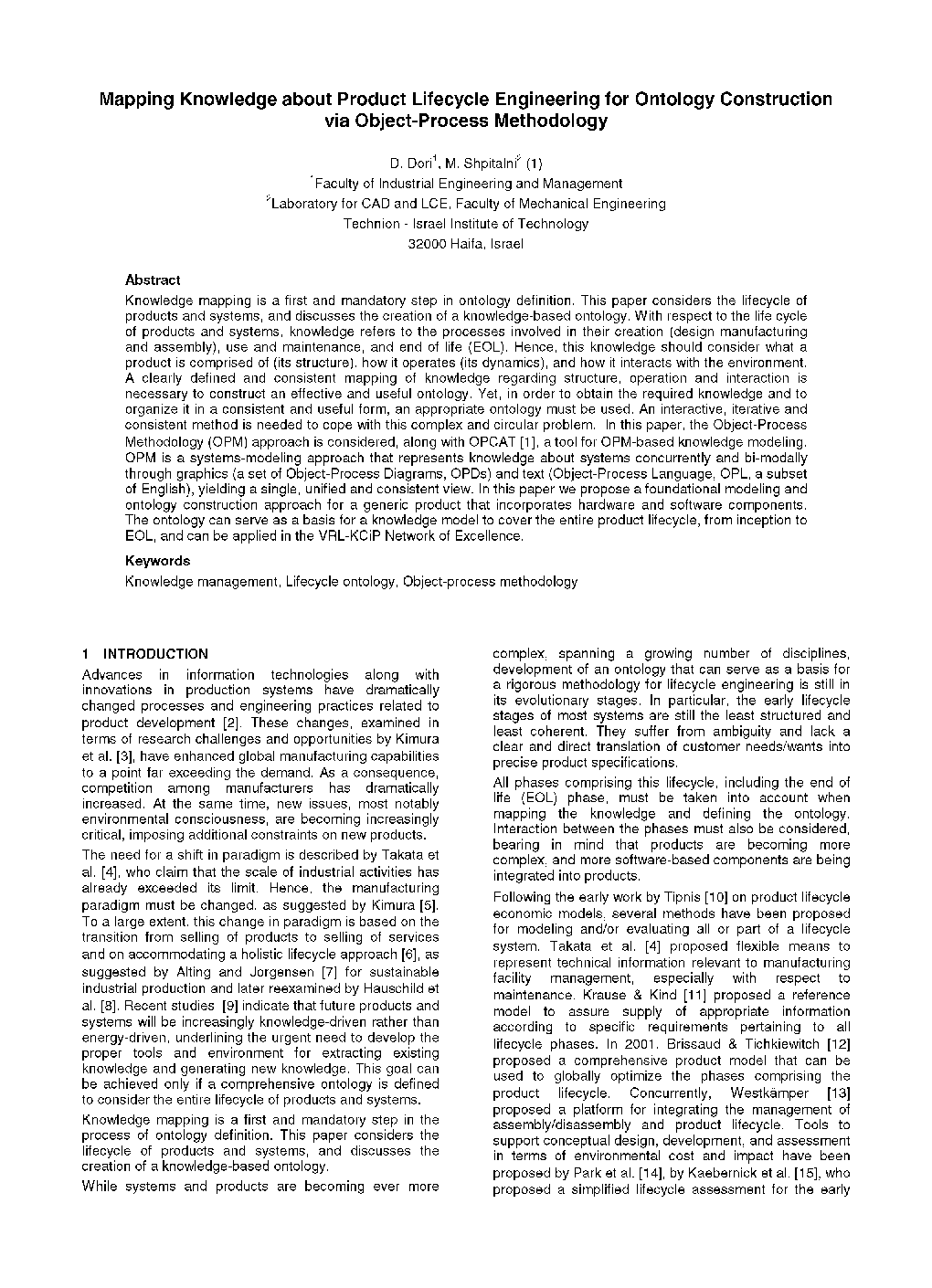| Article ID | Journal | Published Year | Pages | File Type |
|---|---|---|---|---|
| 10673659 | CIRP Annals - Manufacturing Technology | 2005 | 6 Pages |
Abstract
Knowledge mapping is a first and mandatory step in ontology definition. This paper considers the lifecycle of products and systems, and discusses the creation of a knowledge-based ontology. With respect to the life cycle of products and systems, knowledge refers to the processes involved in their creation (design manufacturing and assembly), use and maintenance, and end of life (EOL). Hence, this knowledge should consider what a product is comprised of (its structure), how it operates (its dynamics), and how it interacts with the environment. A clearly defined and consistent mapping of knowledge regarding structure, operation and interaction is necessary to construct an effective and useful ontology. Yet, in order to obtain the required knowledge and to organize it in a consistent and useful form, an appropriate ontology must be used. An interactive, iterative and consistent method is needed to cope with this complex and circular problem. In this paper, the Object-Process Methodology (OPM) approach is considered, along with OPCAT [1], a tool for OPM-based knowledge modeling. OPM is a systems-modeling approach that represents knowledge about systems concurrently and bi-modally through graphics (a set of Object-Process Diagrams, OPDs) and text (Object-Process Language, OPL, a subset of English), yielding a single, unified and consistent view. In this paper we propose a foundational modeling and ontology construction approach for a generic product that incorporates hardware and software components. The ontology can serve as a basis for a knowledge model to cover the entire product lifecycle, from inception to EOL, and can be applied in the VRL-KCiP Network of Excellence.
Keywords
Related Topics
Physical Sciences and Engineering
Engineering
Industrial and Manufacturing Engineering
Authors
D. Dori, M. Shpitalni,
